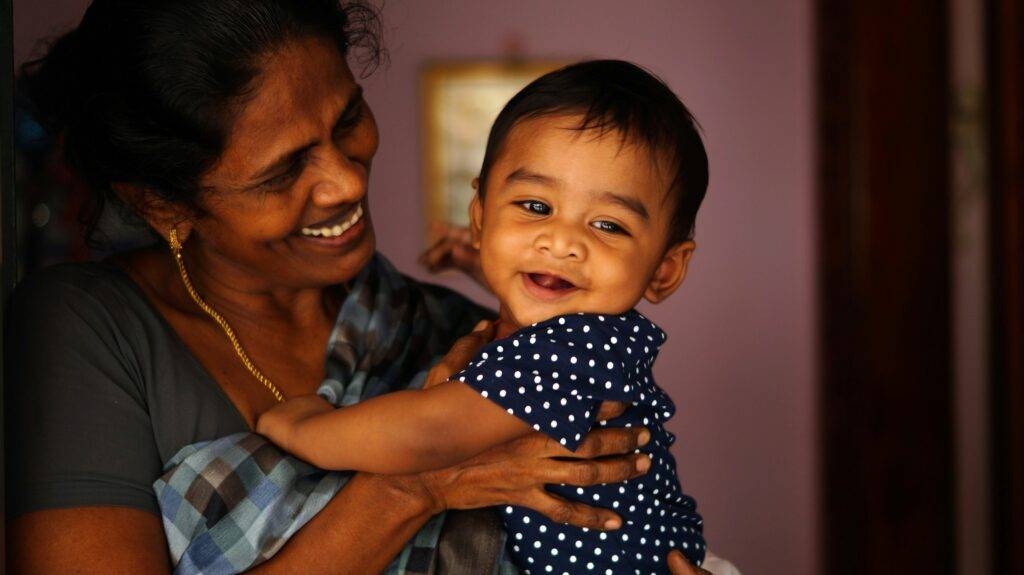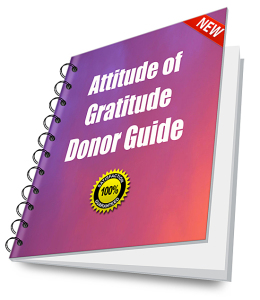 In an issue of her Loyalty Letter, Lisa Sargent recently noted:
In an issue of her Loyalty Letter, Lisa Sargent recently noted:
“I just wrapped up supporter survey season in my little copywriting studio. And every year, the most powerful answers come from one simple question:
“WHY DO YOU GIVE?”
The responses stop me in my tracks every time. I smile. I cry. I sigh. My coffee turns tepid in its insulated mug. And I remember why we’re here.”
It’s a really good idea to stop and pause, every now and then, to think about why people give to you.
In fact, you might want to do your own survey. Or you can ask people to answer this on your appeal remit piece or donation landing page. Because once you understand your donors’ motivations, you can tap into them when crafting supporter communications.
I’ve grouped some of the answers Lisa shared (in quotations). They jumped out at me because they’re emblematic of the pillar fundamentals of a successful fundraising program. People don’t just give because you ask them for money. Sure, they must be asked. But, that alone is insufficient to inspire philanthropy. There’s another, deeper reason people give.
It’s Because of How You Make People Feel
I often think of the lyrics from the 1975 hit song by Brazilian singer Morris Albert, “Feelings.” That song was about romantic love, but the underlying message is about what really matters to human beings.
“Feelings, nothing more than feelings… Feelings, whoa, oh, oh, feelings...”
Donors want to feel they’re more than ATMs
- “You are not always looking for fundraising.”
- “You make us feel we are part of your work rather than a money machine that needs constant pumping.”
Donors want to feel a strong personal connection
- “The personal touch, you make a person feel like part of the family.”
- “The stories could be me.”
- “My close friend faced what your organization works on.”
- “My family was poor when I was in school.”
- “I give in memory.”
- “You’re a local”
- “I just love to be called a member of the family.”
Donors want to feel appreciated
- “You are thankful for what you get.”
- “I love the way you thank donors in such a personal way it makes it a pleasure to give to you.”
- “The way you appreciate the little we do to help out.”
- “You were so thankful for my donation.”
Donors want to feel the impact of their giving
- “Regular feedback on what donors are achieving.”
- “Hearing through your newsletter about the work you do.”
- “The stories of people we help.”
- “I feel you use my donations to the best of your ability.”
- “You just write to me.”
Donors want to feel your authenticity
- “Your simple honesty and no bull.”
- “Your personal messages make me feel like I’m really making a difference.”
- “Your newsletters tell things just how they are.”
Donors want to feel the feels
- “Your newsletter brought me to tears.”
- “A letter you sent to me in the mail touched my heart.”
- “My own human heart.”
- “Compassion.”
- “Conscience.”
Donors want to feel good about themselves
- “It makes me feel less selfish.”
- “I like to help people and animals in need.”
- “A chance to help.”
- “Because my Dad always said, ‘When one is lucky in life, give something back.’”
- “If I could be kind as others have been to me.”
Donors want to feel joy
- “It makes me feel good to help.”
- “Just to know that in a small way, I am making a difference.”
- “I feel blessed in some small way that I can help,
- “I needed to do something to help.”
- “When I give I feel so much happier.”
It’s Because You Show Them How to Express Their Love
Never forget the true meaning of the word “philanthropy” – philos (love) + anthropy (humankind). Most people have plenty of love to give.
It’s your job to help them accomplish this – and to feel good about it afterwards. It’s not just about the money. It’s about the warm glow philanthropy brings – even when people are merely contemplating making a gift. Something in our brains simply lights up when we’re caring for others.
Which is good for the donor, good for your mission, and good for the world. Darwin posited the most caring communities are the survivors. Survival of the “fittest” was a term coined by Herbert Spencer, not Darwin. For Darwin, being “fit” meant being compassionate. And the communities in which members cared for each other were the ones, ultimately, which thrived.
That’s why your donors naturally want to care for those who rely on you for help. And it’s why you need to care for your donors – so you, and your beneficiaries, all continue to survive and thrive.
Love of humankind is alive and well. It’s your job to shine a light on it by strengthening connections with your supporters and growing the giving that will yield a bright future.
Channel an Attitude of Gratitude
If you know you could do a better job of keeping and upgrading your supporters then the Donor Retention and Gratitude Playbook is for you! Six volumes with absolutely everything you need to know. I’ve thrown in the whole caboodle — all that I know from my 30 years in the trenches as the leader of teams of development staff and from my years consulting with a range of organizations of different stripes.Tons of tips, templates, samples and resources – plus you get a free 15-minute consult. And, for something you’ll reference regularly, it’s pennies. Why? I really can’t stand that you’re losing all your donors. Stop just doing things right… do the right things!
Photo by DICSON on Unsplash






